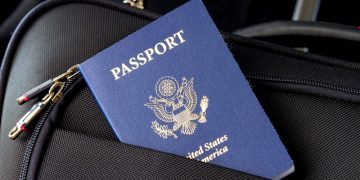These Are the 6 Pieces of Data You Do NOT Want to Be Stolen by Cybercriminals

Nowadays, cybercriminals are pretty much after any kind of data they can get their hands on. That means that they are looking for full names, usernames, pets’ names, lists of friends, colleagues, and family members, and even music, movie, and sport-related favorites. Cybercriminals use this kind of data to, potentially, guess passwords and gain access to personal or corporate accounts. The sad news is that they are succeeding. Of course, crooks do not really need to work hard these days to guess passwords because people continue to use weak ones. While passwords can be strengthened, there are pieces of data that cannot be protected or changed once they are leaked online. Without a doubt, having any kind of personal information obtained by cybercriminals is a tragedy, but there are a few specific pieces of data that you do NOT want to be stolen if you care about your privacy and data security.
Table of Contents
1. Social Security Number
This isn’t the first or the last time we are discussing the safety of social security numbers. Unfortunately, they are usually gathered during massive data breaches that you cannot stop personally. For example, if your employer is hacked, and the SSNs of all employees are leaked, the blame falls on the shoulders of the employer, of course. Sadly, cybercriminals can also extract SSNs using phishing scams, and so you need to be cautious. If you ever receive an email that requests your social security number, or if you ever land on a website requesting it, you have to delete the email and exit the website. Cybercriminals use social security numbers in combination with driver’s license numbers, full names, and other personal information to apply for loans, tax refunds, and housing benefits, and that can harm your credit and jeopardize data security overall. Basically, cybercriminals use social security numbers to perform identity theft, and fixing that can be very problematic, considering that getting a new SSN is an ordeal.
The Federal Trade Commission suggests reviewing credit card and bank statements often, contacting utility suppliers if payment bills do not show up on time, checking your health insurance plans to see if there are no random charges, shredding personal documents, and also reviewing credit report at least once a year. These are simple tips that might help you catch criminal activity related to stolen SSNs in time.
2. Medical Data
It is crucial that you check your health insurance plans and keep yourself in the loop about any healthcare data breaches that might come to the light of day. Unfortunately, cybercriminals are very successful at attacking clinics, hospitals, private practices, and everything in between. In fact, from 2015 to 2019, 93% of healthcare organizations in the US experienced data breaches. This is a shocking number. Needless to say, healthcare clinics and hospitals can accumulate incredible amounts of highly sensitive information, including patients’ social security numbers, full names, home addresses, insurance data, and so on. Using this information, cyber attackers can seriously jeopardize personal data security because they can fill drug prescriptions, get medical care without paying a dime out of their own pockets, and receive medical attention using stolen identities. They can also gather medical images and test results to blackmail victims. Obviously, if this is what you face, you have to contact your healthcare provider and law enforcement ASAP.
3. Home Address
Whether your home address is leaked during a data breach or you are tricked into disclosing it yourself, if cybercriminals learn this piece of information, you could be in danger. When we are talking about data security, we are usually most concerned with virtual security; however, if cybercriminals manage to figure out where you live, your physical security could be jeopardized too. Cybercriminals will not go knocking at your door, but this piece of data could easily be sold online to actual, real-life thieves. If they can record your home address along with some other information about you (e.g., full name, social networking accounts, or phone number), they could start spying on you. Think about it… How much information do you share online publicly? Do you constantly share videos and photos of what you are doing at any given time? If you do, and if criminals manage to track you, they could figure out when you are not at home, and that could help them rob you, stalk you, or maybe even endanger your physical health.
4. Email Address
People are often very willy-nilly when it comes to email address sharing. For whatever reason, they choose to believe that their email addresses cannot be exploited by cybercriminals, or they are sure that they can easily detect phishing emails sent to them. The truth is that an email address is one of the most important pieces of data that any cybercriminal could obtain. Email addresses are often shared on social networking platforms, and some companies share employees’ addresses on their own websites. Also, when massive data breaches occur, email addresses are often the first pieces of information to be exposed, which means that cybercriminals usually have lists upon lists of legitimate email addresses that can be exploited. And they can be exploited in many ways. For example, Ransomware can be spread using clever phishing emails. Cyber attackers can use phishing messages to trick people into disclosing the login credentials for Amazon, Office 365, or any other popular platform. Without a doubt, you have to be selective about who you share your email address with, and you also need to learn how to recognize phishing scams.
5. Phone Number
Cybercriminals can expose you to scams using your email address, and they can use your phone number in a similar manner as well. Now that people own smartphones, it becomes easier and easier for schemers to exploit phone numbers for successful phishing scams. This is yet another example of how people are careless when it comes to data security. Just like with email addresses, phone numbers are often left exposed online, and schemers can snatch them from social networking accounts or using search engines. Unfortunately, schemers can send fake text messages with links that either route to malicious websites or are used to automatically infect smartphones with malware or spyware. Some schemers stick to phone call scams. You yourself might have received a phone call from someone allegedly working for Apple, Verizon, or any other well-known company. Phone call schemers usually try to extract full names, home addresses, credit card numbers, passwords, and other pieces of information that could help hijack accounts, steal money, and perform more sophisticated scams.
6. Username + Password
When we are talking about data security, we CANNOT skip what might be the most sensitive piece of data that schemers could take from you, and that is the golden combo of username and password. If cybercriminals manage to obtain this combination – which data breaches and phishing scams can facilitate – they could gain access to your virtual world. With a password and a username at hand, cybercriminals could access your online banking accounts and impersonate you to make unauthorized purchases and money transfers. They also could access cloud storage accounts to leak photos and videos, which could then be used to blackmail you. They could even hijack your social media accounts and use them to scam others or expose them to malware. Unfortunately, cybercriminals do not need to rely on data breaches and phishing scams to obtain login data. If hackers have email addresses, or if usernames are public, brute-forcing passwords is easy. On top of that, people continue to use weak passwords that can be cracked in seconds. Just recently, weak passwords made it possible for hackers to hijack ring cameras and spy on their owners without them suspecting a thing.
In conclusion, you have to tighten up your data security. Every piece of information is valuable because it can help access more of it. A publicly shared email address can be used to find a publicly shared phone number, which can be used to scam its owner into disclosing a password, and that password can be used to access a personal account containing other pieces of private information. In some cases, there is nothing you can do to protect your data because companies, healthcare organizations, utility suppliers, and others responsible for keeping it safe fail you. However, you are not powerless. Be cautious about what you share online. Do not make it possible for someone to know exactly where you are via social media. Manage your passwords wisely. Stay on top of your credit reports and medical bills. Learn how cybercriminals use social security numbers and other pieces of private information. Most importantly, take data security into your own hands.








